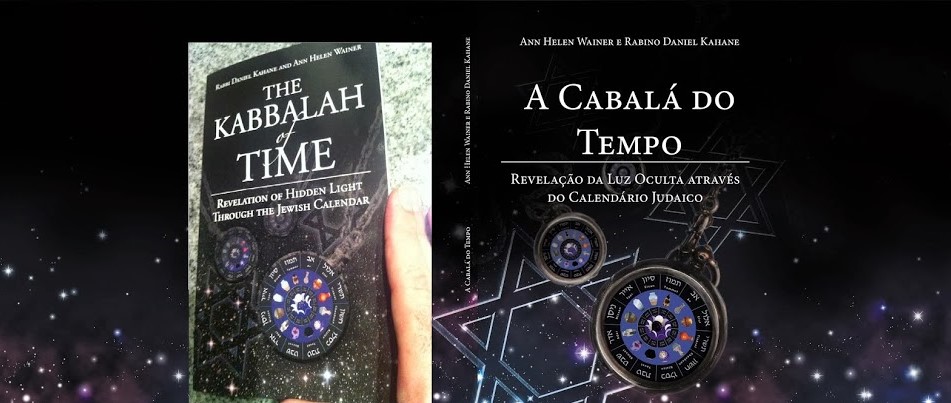PEREK SHIRAH: The ducks
are saying: "Trust in G-d forever and ever, for G-d, the Eternal, is the
strength of worlds." (Isaiah 26:4)
PIRKEI AVOT: Rabbi Shimon
[Bar Yochai] would say: Three who eat at one table and do not speak words of
Torah, it is as if they have eaten of idolatrous sacrifices; as is stated,
"Indeed, all tables are filled with vomit and filth, devoid of the
Omnipresent" (Isaiah 28:8). But three who eat at one table and speak words
of Torah, it is as if they have eaten at G-d's table, as is stated, "And
he said to me: This is the table that is before G-d." (Ezekiel 41:22)
SEFIROT: Gevurah
shebeTiferet (discipline and judgment within the context of beauty and balance)
We now come to the sixteenth week, when the ducks proclaim their everlasting trust in G-d, the Eternal Rock (Isaiah 26:4). The song can also be understood as praise, that G-d is the strength of all worlds. During this week of the month of Teveth, we remain connected with the strength of the tribe of Dan, and to its ability to multiply. The Talmud states that Teveth is the coldest month of the year, “when the body takes pleasure in the body.”[1]
It is no coincidence that Perek Shirah mentions the ducks in
the plural. Ducks multiply quickly and have large families; they travel in
groups and rely on each other for survival during migration from the cold. After
the destruction of the First Temple, the number of Jewish survivors was very
small. According to the Book of Jeremiah, 4,600 people were exiled to Babylon in
total. [2] And yet, in a relatively short period of
time, the Jewish community in Babylon thrived, becoming numerous, influential,
and wealthy.
The song of the ducks also appears to be a reference to
G-d’s strength as well as to the fact that He grants us the ability to
procreate. The name Tzur is a reference to G-d’s strength, but can also be
translated as Creator or Craftsman. The word Yotzer, which as the same root as Tzur
is used in Tanach specifically as a reference to G-d, who “fashioned you from
the womb.”[3]
The song also contains a mixture of both masculine and
feminine names of G-d. It contains the name formed by the letters yud and heh,
which is feminine, and Tzur, which is masculine. In between, the name Hashem is
used, which contains both masculine and feminine aspects.
The teaching of Pirkei Avot for this week is found in the
lesson of Rabbi Shimon (Bar Yochai): "Three [people] who ate at the same
table and did not speak words of Torah, it is as if they had eaten of
sacrifices to the lifeless [idols] ... But three [people] who ate at the same
table and spoke words of Torah, it is as if they had eaten from the table of
G-d." (III: 3)
Rabbi Shimon speaks of the importance of using words of the
Torah, so that we are always connected to Hashem. This teaching of Pirkei Avot
is connected to the month of Teveth because, as explained earlier, the
disregard for the spiritual importance of Torah study was the cause of the
destruction of the First Temple. Rabbi Shimon was the greatest expert of the
hidden secrets of the Torah. He understood perfectly how by refraining from
words of Torah, one can negatively affect the world.
Furthermore, by teaching us about the importance of infusing our meals with words of Torah, Rabbi Shimon Bar Yochai is teaching us how to serve Hashem with our bodies. That is the deeper meaning behind the above Talmudic statement that in this month, “the body takes pleasure in the body.” The Lubavitcher Rebbe explains that by serving Hashem with our bodies, not just with our minds and souls, we bring forth an even deeper impact, affecting Hashem’s “body,” His very essence.[4] In this way, we fulfill G-d’s ultimate desire, which is to build a dwelling place for Him in this lowly realm.
If we follow Rabbi Shimon’s advice, our eating a simple meal, becomes as if we were eating from the “table of G-d,” in the Temple. The same can be said for marital relations. It can be the most holy of activities, or the most profane, it all depends on the circumstances and the intentions of the couple.
This week, the combination of the sefirot results in gevurah
shebetiferet. We recover from the pain of the destruction of the Temple and use
our strength and discipline to connect to the balanced and spiritual beauty of
the Torah.
A lesson in self-improvement that we can learn from the
ducks’ words is that we must have total confidence in G-d, relying on Him
always, just as we would rely on a strong and stable rock for support.
[1] Talmud, Megillah 13a
[2] Chapter 52:28-30
[3] Isaiah 44:2
[4] “Love
in the Ice Age,” based on the talks of the Rebbe, ShabatVayeishev 5735 and
Shabat Vayigash5750, available at: https://meaningfullife.com/torah/parsha/bereishit/vayigash/Love_in_the_Ice_Age.php
[Gematria Thought: Similarly, while last week’s number fifteen contained two
letters of Hashem’s name, yudand heh, and was feminine, the number sixteen also
contains two letters of Hashem’s name, yud and vav, but is masculine in nature.
The yud in Hashem’s name represents the sefirah of chochmah (also known as the
“father”) while the vav in His name represents the six masculine emotional sefirot
from chesed to yesod (known as Ze'er Anpin). These concepts are in line with
this week’s theme of procreation, as well as contrasting G-d’s masculine and feminine qualities.
The number sixteen also contains aspects of strength and
support evoked in the song of the ducks. Sixteen is four times four. Just as
the number four represents stability, as explained above in the fourth week, so
too does the number sixteen express an even higher dimension of such stability.]

No comments:
Post a Comment